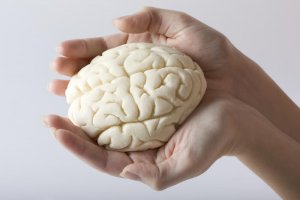The 5 Best Memory Exercises


Reviewed and approved by the psychologist Bernardo Peña
Although we often think about exercising our bodies, we often forget that we also need to train our memory. If you want to improve your concentration levels and better consolidate new concepts, you need to find out some ways to exercise your memory. Memory exercises help to have an active mind. Maybe with the passage of time you stop learning, reading, acquiring new knowledge… in short, presenting your memory with new challenges.
For this reason, we’re going to share the 5 best memory exercises to help you have a much more young and agile mind for longer. Let’s go!
1. Do Revision Every Day
Do you remember the days when you had an exam the next day and so you were cramming before bedtime? Well, this was actually an excellent memory exercise. However, over time, as we finish studying, we stop revising.
To do this exercise you don’t need to be learning something new. In the evening, simply revising everything you’ve done during the day, what’s happened to you, and what you’ve eaten, will be enough.

2. Create Mind Maps
How good is your spatial memory? Many people find it difficult to remember where places are or how to get there. If you’re having this problem, creating mind maps could be an excellent exercise to improve your spatial memory.
The way you do this is as follows: Each time you visit a new place, once you get home, create a map, draw it out. This will boost your memory, and not just your spatial memory, but also your visual memory. Isn’t that fantastic?
3. Use Your Non-dominant Hand
Are you right-handed or left-handed? One of the more fun memory exercises is to do all the things you normally do but with your non-dominant hand. For example, if you’re right-handed, try to write or brush your teeth with your left hand.
Of course, in the beginning you’re going to find this really difficult. But that’s completely normal. It’s going to require effort to use the hand you don’t normally use. However, this is really positive. Your mind will be working hard and exercising.
4. Change Your Routine
Although it might seem silly, changing your habitual routine involves working your memory. Instead of using the lift, try the stairs. Instead of going your usual way to work, try a different route.
This will improve your attention levels and will keep you more alert. This is something positive, since you’ll come across new things. When you do something routinely, you forget to notice things around you.

If, for example, you choose a new way to get to work, you’ll have to make an effort to think about if you’re going in the right direction and re-orientate yourself if you get lost. Then, once you get home, you can combine this with creating a mind map which will also help your mind.
5. Learn Something Every Day
The last of these memory exercises doesn’t mean that you have to start a course to learn something. In your daily life there will be many things which can be used to learn something new every day.
For example, you can try to learn a new telephone number, or a friend’s address that you’re always asking them for and that you’ve never remembered. It’s all learning and it’ll really be useful.
Have you ever tried out any of these memory exercises? Which one did you find the most useful? There are many more besides these, such as doing Sudoku, or using certain apps to keep your memory active.
Remember, exercising your memory can make a big difference between whether you easily forget something or not. Exercise, whether physical or mental, is always good for you. Why don’t you try them out?
All cited sources were thoroughly reviewed by our team to ensure their quality, reliability, currency, and validity. The bibliography of this article was considered reliable and of academic or scientific accuracy.
- Aguado-Aguilar, L. (2001). Aprendizaje y memoria. In Revista de Neurologia (Vol. 32, pp. 373–381).
- Morgado, I. (2005, March). Psicobiología del aprendizaje y la memoria: Fundamentos y avances recientes. Revista de Neurologia.
- Wycoff, J. (1994). Trucos de la mente creativa: para resolver problemas, tomar decisiones, perfeccionar la memoria, mejorar la concentración y agilizar el pensamiento. Martínez Roca.
This text is provided for informational purposes only and does not replace consultation with a professional. If in doubt, consult your specialist.








